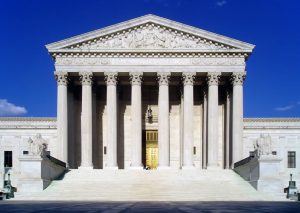
On Monday, the Supreme Court overturned the conviction and coinciding death sentence of an African-American man from Georgia under the determination that the prosecutors violated the Constitution by not including jurors of similar race and ethnic background.
At first, the jury sent back a 7-1 ruling in favor of the execution of death row inmate Timothy Tyrone Foster. However, the defense team managed to obtain alarmingly intimate notes from prosecutors detailing a plan to keep African-Americans from making it onto the jury.
Chief Justice John Roberts wrote, in a court statement, “the prosecutors were motivated in substantial part by race,” after they intentionally struck two potential jurors from the pool—two African-Americans. He continues, “The focus on race in the prosecution’s file plainly demonstrates a concerted effort to keep black prospective jurors off the jury.”
Chief Justice Roberts goes on to say in the report, “Such evidence is compelling; but that is not all. There are also the shifting explanations, the misrepresentations of the record, and the persistent focus on race in the prosecution’s file.”
Not surprisingly, Justice Clarence Thomas, who remains the Supreme Court’s only African American member, cast the only dissenting vote. Thomas laments about this moment in history, saying: “Foster’s new evidence does not justify this court’s reassessment of who was telling the truth nearly three decades removed from voir dire.”
Of course, Georgia’s courts could still deny Foster’s efforts to garner a new trial through the assertion over prior rulings had been based solely on state law and not on federal law. Roberts continues, “It is important that we do not lightly brush aside the states’ legitimate interest in structuring their systems of post-conviction review in a way that militates against repetitive litigation and endless delay.”
Indeed, Foster’s lawyer, Stephen Bright—who also happens to be the president of the Southern Center for Human Rights—advises, “Jury strikes motivated by race cannot be tolerated. The exclusion of black citizens from jury service results in juries that do not represent their communities and undermines the credibility and legitimacy of the criminal justice system.”
